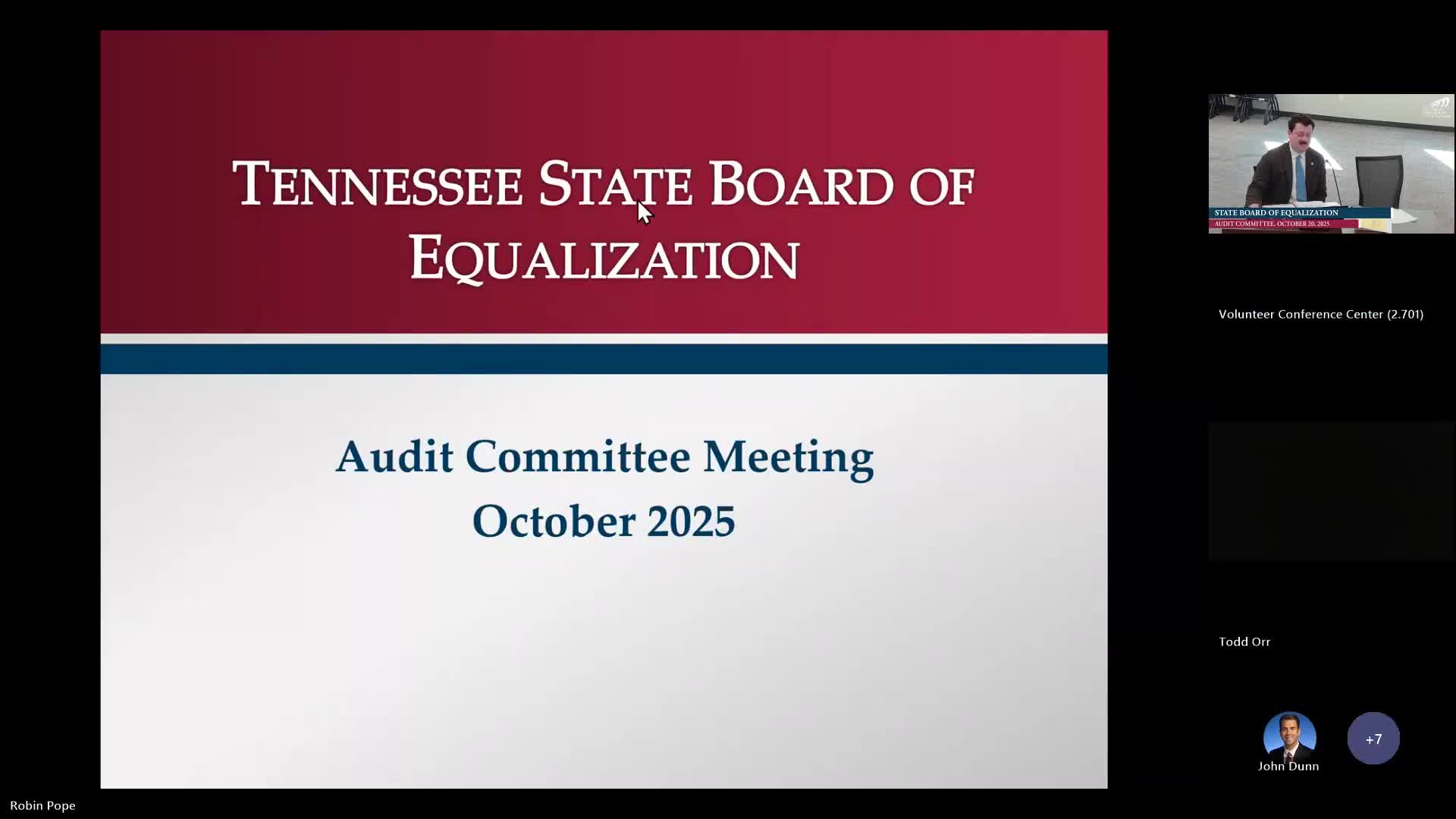State audit committee hears annual update on property-appeals backlog, scheduling changes
Get AI-powered insights, summaries, and transcripts
Subscribe
Summary
Staff from the Comptroller of the Treasury told the State Board of Equalization audit committee that new scheduling tools, status conferences and case management practices have reduced inertia in the appeals process but that filings are at record levels and a small number of firms represent most pending cases.
The State Board of Equalization audit committee heard an annual update on the agency’s property tax appeals workload and scheduling process on its regular audit committee call. Robin, a staff member with the Comptroller of the Treasury, told committee members the office has added digital scheduling tools, expanded status conferences and a case-management approach to speed appeals toward resolution.
The presentation laid out why the work matters: filings remain high after a 2024 spike and the office is already accepting 2025 tax-year appeals. “If you hit submit on Monday morning, you can be scheduled for a hearing by Monday afternoon if you're ready to move forward,” Robin said, describing a new online scheduling option and staffed call line intended to reduce delays.
The update summarized how appeals are handled and who does what. Robin said the Comptroller’s office is the filing agency that receives and processes value and exemption appeals, schedules hearings, prepares final appeal results for trustees, and maintains records for refunds or additional tax billing. The Secretary of State’s administrative procedures division conducts the hearings, issues decisions and prepares certified records for court appeals, the presentation said.
Why it matters: the committee was shown three operational levers the office is using to reduce backlog—remote and rapid scheduling, structured status and scheduling conferences for parties, and a prescheduling process to identify and move default or nonresponsive petitioners. Robin said the program also uses a loose “three-strike” tracking rule for repeatedly inactive cases and a case-management step for appeals that stall after status conferences.
Key figures and trends provided by staff included: about 8,000 parcels in the Comptroller’s queue overall; roughly 4,700 of those awaiting scheduling were filed in 2025; more than 60% of appeals close without reaching an administrative judge while about 40% require assignment to an administrative judge; and two firms—Ryan LLC and Evans & Petrie—represent more than 70% of pending appeals. Robin also said most appeals heard by the board are commercial or industrial properties (about 90%). She noted a handful—about 20 appeals—date to 2020 or earlier but are active.
Committee members acknowledged the presentation. One member commended Robin for pushing scheduling improvements and measuring progress to prevent matters from languishing. The committee also voted to approve the minutes from the Nov. 12, 2024 meeting by voice vote and later moved to adjourn.
The presentation emphasized limits on the committee’s control: the office cannot control which counties reappraise, how county assessor offices operate, or who files appeals. Robin said the office can provide the framework and tools to move appeals through the system but that some external constraints—such as how many agents or hearing slots are realistically available—remain.
The committee did not receive any public comment during the meeting. The audit committee meeting concluded after the report and routine adjournment motions.
